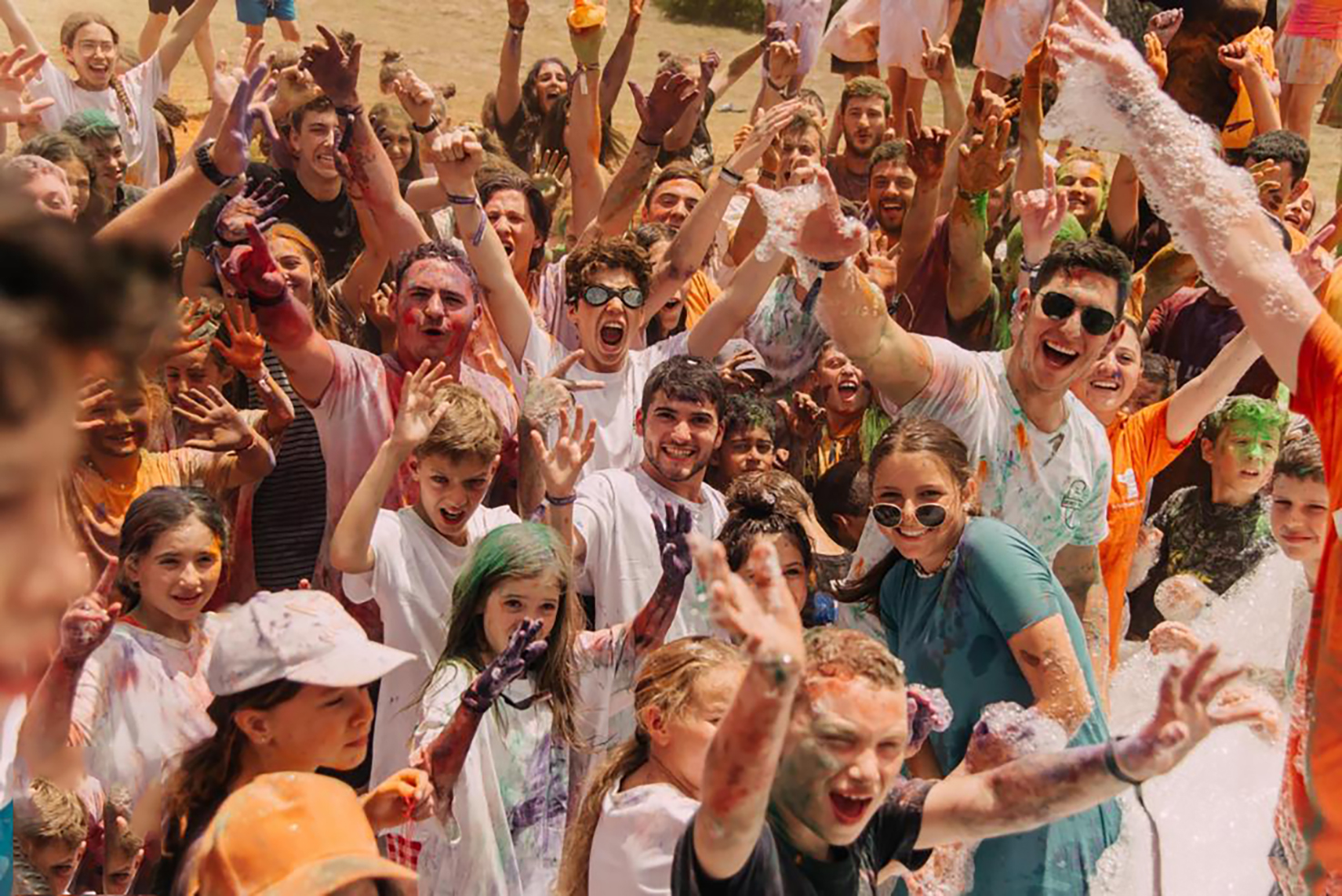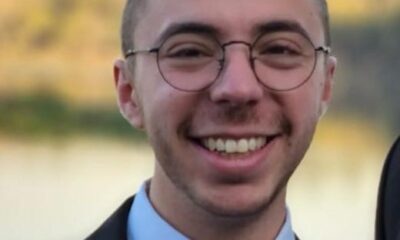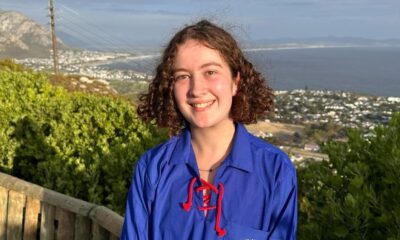
Featured Item

Changing lives, making friends – machaneh back in business
Published
1 year agoon
“The camp experience is part and parcel of growing up as part of South African Jewry. The growth, development, and inspiration that happens on machaneh is unlike anything else,” says this year’s Bnei Akiva [Bnei] rosh machaneh, Dena Cohen. She’s one of numerous madrichim preparing for the three major machanot South African Jewish youth will have an opportunity to experience in December for the first time in three years.
“There’s a reason your siblings, parents, and grandparents have been going to camp for decades,” says Brad Gottschalk of Habonim Dror [Habo]. “Habo is unlike any space I’ve experienced, and I know people in their 80s who say the same. I can guarantee that machaneh will change your life for the better. It’s not some lame summer camp. Machaneh is the only place I’ve had impromptu parties or made a ‘bakuzzi’ (jacuzzi in a bakkie). Cape Town is going nowhere. Plett is going nowhere. Machaneh, however, is something you can do only now. Ask your family for stories about camp. It’s something that will stay with you forever.”
“Youth movements strengthen the foundation of Jewish communities,” says Netzer Mazkir Julian Gordon. “They provide new perspectives, and most importantly, a fun place to enjoy with close friends. The more the Jewish community can support us, the more we can support those around us.”
After the pandemic “we’re putting the heart back into the body, and the blood back into the veins of Bnei Akiva”, says Cohen. “We’ve been hard at work training our madrichim to gain the skills to be back at camp. We’re committed to recreating the connection between maddies and channies.
“Bnei Akiva machaneh is a unique experience because of our incredible madrichim,” she says. “Channichim have the chance to connect to individuals whose way of life is based on Torah values. They are neither parents nor teachers, but role models who give continuously. Most madrichim feel indebted to their own madrichim for changing their lives and wish to emulate it for their channichim. And so, the extraordinary cycle continues.”
“The fact that machaneh is happening this year for the first time in forever is surreal,” says Gottschalk. “I think about the first time the buses are going to enter the campsite, the late-night talks around the campfire, or hearing Od Yavo Shalom blast on the loudspeakers during havdalah, and I get chills. I can’t wait for a new generation of kids to experience it.”
For those who are hesitant to come to machaneh, Gordon says, “There’s no harm in putting yourself out there. New experiences shape us in a way we discover only once we’re in them.” Gottschalk agrees. “Give it a chance,” he says. “Seriously, what do you have to lose?”
To parents who are unsure about sending their kids to machaneh, Cohen says, “Machaneh is a safe, warm, growth-promoting, and fun environment where kids connect to madrichim who embody Torah values while being active contributors to society. We know it can be daunting to send your children to camp, but they will gain immeasurable passion for Judaism and Israel.”
“I understand that it’s difficult to send your kids away on camp after they’ve been at home for two years,” Gordon says. “However, it’s important for them to have new experiences with friends in a different setting. A change of scenery is incredibly refreshing.”
“The world has never been so complicated and scary – especially for kids,” says Gottschalk. “How lucky are we to have camp as it can help fix what was broken. The realisation that you can change the world is beyond description. The fact that kids choose not to be on their phones on camp speaks to how important the space is. Without pressure to conform, Habo is a healthy space that’s an anomaly in the 21st century. Kids need to relearn how to socialise in-person rather than through a screen. I can’t think of a better place than camp to do this.”
After not having machaneh for two years, “It will be tricky to catch up and, in some cases, rebuild friendly connections,” says Gordon. But they plan to build on a long tradition. “There’s no better environment to facilitate coming back together than the campsite,” says Gottschalk. “Maddies work tirelessly, constantly thinking what more they can do to make the environment better. With our winter camp and mini machanot throughout the year, we have focused on catching up a bit of what was lost for channies. For many, it will be their first time at the campsite, and they’re going to have an incredible introduction to Habo.”
“It’s daunting to come on machaneh especially after two years of being cooped up at home,” says Cohen. “But imagine being with your friends for three weeks, with awesome madrichim. Going to the beach, inspiring tochniot, sports tournaments, ruach sessions, empowering Torah learning, tiyulim, Israel education, high-level kollel, uplifting Shabbos, Zionism, and so much more. I can’t imagine a more unbelievable experience.”
“It’s always been the people that make Netzer unique,” says Gordon. “We have fewer people than other movements, but that allows us to build greater friendships.”
“On so many levels, Habo offers a space that empowers kids,” says Gottschalk. “Our education allows you to explore your Judaism, Zionism, and identity in an informal way not necessarily offered at school. We put so much effort, time, and thought into our peulot – Habo channichim always leave machaneh with the tools to understand themselves and the world around them better.
“And as serious as the educational side can be, I’ve never been in such a funny and silly environment,” he says. “It’s magical that inside the bounds of the campsite, the need to maintain social expectations and hierarchies goes away.”
For those who believe Habonim is too “alternative”, Gottschalk says, “Habo is a space for everyone. Channies mustn’t close themselves off because of misconceptions. Ask those who have been – they will tell you how cool Habo is. Habonim offers something for everyone.”
“Machaneh is quintessential in people’s lives,” says Cohen. “Many leaders in our community and around the world are Bnei bogrim who are making a massive difference in the local and global arena. Bnei Akiva is extremely lucky to have immeasurable amounts of support. We’re eternally grateful to the community.”
“Camp hasn’t just changed the lives of individuals, it has changed the world,” says Gottschalk. “We built kibbutzim, fought apartheid, and created community leaders. Habo alumni have won the Israel Prize and been knighted – and they all say their roots are at camp. Habo channichim leave the campsite more conscious of the world around them. Habo believes in the power of youth.”








